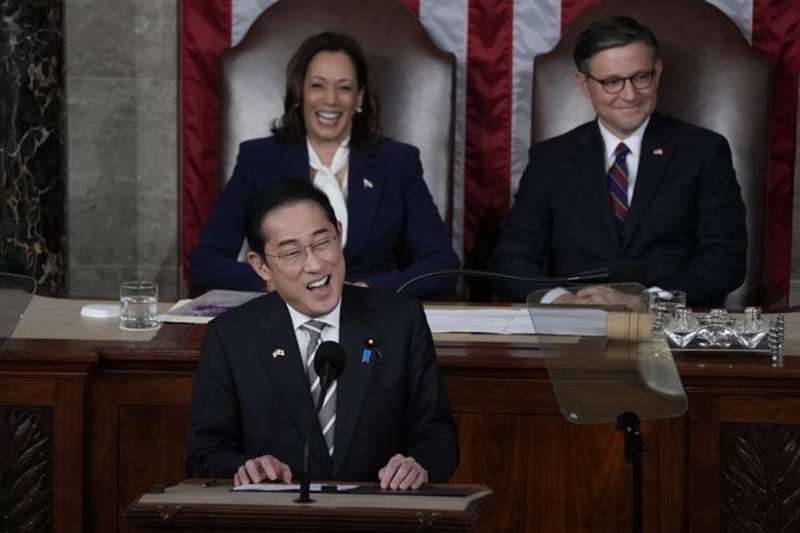Japanese government fears America and Israel !

Japanese Prime Minister Fumio Kishida at a joint session of the US Congress
The recent foreign policy decisions made by the Japanese government, particularly concerning Iran and its relations with the United States and Israel, have sparked significant controversy and debate both domestically and internationally. This report aims to analyze and assess four key instances where the Japanese government's stance has diverged from expectations, leading to concerns regarding the nation's integrity and moral standing on the global stage.
1. Response to Israel's Attack on Iran's Embassy in Syria
On April 1, Israel conducted a targeted attack on the consulate building of the Iranian embassy in Syria, resulting in casualties, including high-ranking Iranian military personnel. Despite widespread international condemnation of Israel's actions as a violation of Iran's sovereignty and international law, Japan refrained from condemning Israel's aggression and instead aligned itself with the United States. This stance raised eyebrows both domestically and internationally, as Japan's traditional diplomatic approach of upholding principles of sovereignty and international law seemed compromised.
2. Reaction to Iran's Retaliation Against Israel
Following Iran's retaliation against Israel, which it deemed a legitimate response under Article 51 of the UN Charter, Japan surprised many by condemning Iran's actions. Despite the provision in Article 51 allowing member states to defend themselves against armed attacks and report to the Security Council accordingly, Japan's Foreign Minister voiced disapproval of Iran's defensive measures. This departure from expected diplomatic norms further fueled speculation about Japan's motivations and allegiances.
3. Silence on US Lawmaker's Controversial Comments
The Japanese government's failure to protest recent controversial remarks made by US lawmaker Tim Wahlberg regarding nuclear attacks on Gaza, reminiscent of the atomic bombings of Hiroshima and Nagasaki, raised concerns about Japan's commitment to preserving the memory of the victims of nuclear warfare. Despite the deeply ingrained trauma and historical significance of the atomic bombings for Japan, the government opted not to protest Wahlberg's remarks, signaling a departure from past assertions of sovereignty and dignity.
4. Prime Minister's Expressions of Affinity with the US
Prime Minister Fumio Kishida's expressions of affinity with the United States, including paying respects to American soldiers at a cemetery and describing his upbringing in America as a source of pride, drew criticism domestically. Particularly in the context of historical grievances stemming from World War II, where the US inflicted immense suffering on Japan through the atomic bombings, such displays of camaraderie raised questions about the government's commitment to acknowledging and addressing past injustices.
The Japanese government's recent foreign policy stances, characterized by alignment with the United States and reluctance to condemn actions contrary to international principles, have elicited widespread concern and scrutiny. These departures from traditional diplomatic norms and principles of sovereignty, particularly in the face of historical grievances and contemporary global challenges, underscore the need for a critical reassessment of Japan's role and responsibilities in the international community.










পাঠকের মন্তব্য